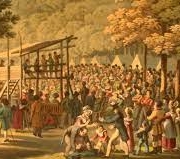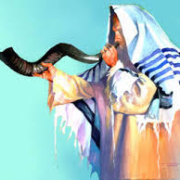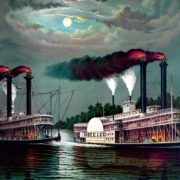I Seek God!
Chuck Colson in his book, Kingdoms In Conflict, wrote: Have you not heard of the madman who lit a lamp in the bright morning and went to the marketplace crying ceaselessly, “I seek God! I seek God!” There were many among those standing there who didn’t believe in God so he made them laugh. “Is God lost?” one of them said. “Has he gone astray like a child?” said another. “Or is he hiding? Has he gone on board ship and emigrated?” So they laughed and shouted to one another. The man sprang into their midst and looked daggers at them. “Where is God?” he cried. “I will tell you. We have killed him–you and I We are all his killers! But how have we done this? How could we swallow up the sea? Who gave us the sponge to wipe away the horizon? What will we do as the earth is set loose from its sun?” (Friedrich Nietzsche, 1889). Nietzsche’s point was not that God does not exist, but that God has become irrelevant. Men and women may assert that God exists or that He does not, but it makes little difference either way. God is dead not because He doesn’t exist, but because we live, play, procreate, govern, and die as though He doesn’t.
But this was not the case with Moses. Although, Israel had survived the judgment of God, for “playing” before the idol of a golden calf, Moses wasted no time in setting up his own tent. Exodus 33:6-7 And the Israelites left off all their ornaments, from Mount Horeb onward. Now Moses used to take [his own] tent and pitch it outside the camp, far off from the camp, and he called it the tent of meeting [of God with His own people]. And everyone who sought the Lord went out to [that temporary] tent of meeting which was outside the camp.
2 Things you can observe from this passage is that Israel got rid of their ornaments. In the Hebrew this literally means their “trappings.” Trappings are defined as the outward signs, features, or objects associated with a particular situation, role, or thing. Typically, most who seek and search after God begin and end at this place. Focusing on the negative, they seek to entice God to love them through their sacrifice and quickly wither away in their pursuit. Through their sacrifices they seek to earn the approval of God. Often with this focus we become the object of our pursuit and center of our worship. But Moses knew not to be satisfied with their outward expressions of regret, and repentance. Instead, he raised up an altar where those who were hungry to know God could seek Him to find and experience Him. The Hebrew word for seek or search in verse 7 means: to search out (by any method, specifically in worship or prayer); by implication, to strive after:—ask, beg, beseech, desire, enquire, get, make inquisition, procure, (make) request, require, seek (for). It’s a peculiar word in that it implies its primary power appears to be that of touching, and feeling. We serve a God who desires us to reach out for Him to find Him. The amazing and awesome thing is that he doesn’t stop there but provides the ways and the means for us to experience the realization of our planned destination. As Nietzsche asked, Where is God? Many of us can say we are taking off the trappings that stand in the way in order to reach through the darkness to touch and be touched by God. Are you taking the time to touch Him or do you live, play, procreate, govern, and die as though He doesn’t?
During this time of praying and fasting are you seeking to touch God and be touched by Him?









